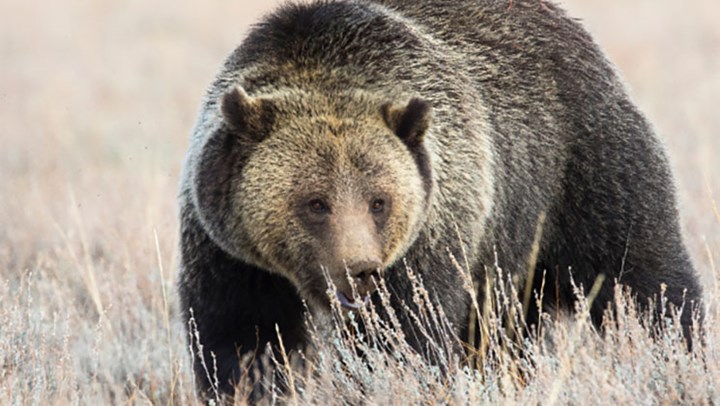
by Phil Phillips - Tuesday, March 20, 2018

As reported on this website in recent months, British Columbia banned grizzly bear hunting effective Nov. 30, 2017. The move went against all science-based facts and ended the taking of 250 bears annually out of an estimated population of 15,000. Fortunately, on the U.S. front—in what I believe is a good move based on scientific numbers and facts—for the first time in more than 40 years Wyoming has announced plans to open a grizzly bear hunt to manage the large number of bears that have taken up residency outside Yellowstone and Grand Teton National Parks. The Wyoming Game and Fish Commission will vote on the hunt May 23 after public input.
According to the Powell Tribune and countless outdoor media outlets, the Wyoming Game and Fish Department (WGFD) is proposing that 24 bears be hunted outside national parks in the northwest corner of the state. The quota includes up to 12 (10 boars and two sows) to be taken in six hunt areas bordering the two parks and an additional 12 grizzly bears in two areas away from the parks.
Promoting the proposal, Brian Nesvik, WGFD’s chief game warden, said, “This draft was shaped by public input we received this fall and winter and the best available science. It contains proposed regulations that would ensure Wyoming will meet its commitment to manage for a healthy and viable population of grizzly bears.”
The hunt proposal includes suggestions from Wyoming residents, including: mandatory hunter education; a focus on hunt areas hunt areas that have a higher potential for bear-human conflicts; the closing of a portion of a hunt area next to Grand Teton National Park to avoid conflicts with wildlife viewing; and the requirement that hunts take place at least a half mile from highways.
According to NRA-ILA, which attended the hearing in federal court in Montana on Mar. 13, the proposed hunting season dates would be scheduled between September and November 2018, depending on the specific hunting area, with the six areas near the national parks up first. Those hunting in areas closest to the parks will carry tracking devices that will be monitored by satellite, permitting them to contact game and fish officials immediately upon taking their bears. Once the first two hunters tag their bears, the state will issue two more tags.
To help ensure harvests in the units away from the parks, the state will permit baiting. Requirements for which bears may be harvested in these units will follow the same protocol of other states where any bear can be taken legally providing it is not a cub or a sow with cubs.
“We believe this proposal reflects the public support for using hunting as a component of grizzly bear management and has many provisions that will recognize this opportunity and keep the grizzly bear population recovered for generations to come,” added Nesvik.
Hunters can apply for tags at a cost of $5 for residents and $25 for nonresidents. Nonresidents will receive 25 percent of the tags. If drawn, the cost of the tag will be $600 for residents and $6,000 for nonresidents as previously set by the Wyoming Legislature.
Wyoming’s proposed season follows the decision in 2017 authorizing Wyoming, Montana and Idaho to proceed with making plans for grizzly bear population management. While Montana Fish, Wildlife and Parks announced it will not hold a hunt in 2018, the Idaho Statesman reports that the Idaho Fish and Game Commission will hear a proposal to open a grizzly bear season this fall at a meeting in Boise on Thursday, Mar. 22. However, the Idaho Attorney General has noted the quota would be only one bear.
Hunters’ Call to Action: Share Your Input with WFGD!
The WGFD is accepting public comments regarding its proposed grizzly bear hunt through Monday, Apr. 30. To weigh in via its website, click here. As noted earlier, the WGFD will hold meetings and make its final decision on May 23. If approved, Wyoming’s grizzly bear season would mark the first since 1975 when grizzlies were given federal protection.
Update from NRA-ILA
According to the NRA Institute for Legislative Action (NRA-ILA), there are currently six lawsuits challenging the U.S. Fish and Wildlife Service's decision to delist the grizzly bears under the Endangered Species Act before a federal court in Missoula, Mont. If any of these suits prevail, grizzly bears will go back to being a threatened species, and the states will lose their management authority over the bears. The judge will have the final say on whether grizzlies stay off the endangered species list. Clearly, a grizzly bear season is no guarantee.
E-mail your comments/questions about this site to:
[email protected]
Proudly supported by The NRA Foundation and Friends of NRA fundraising.
